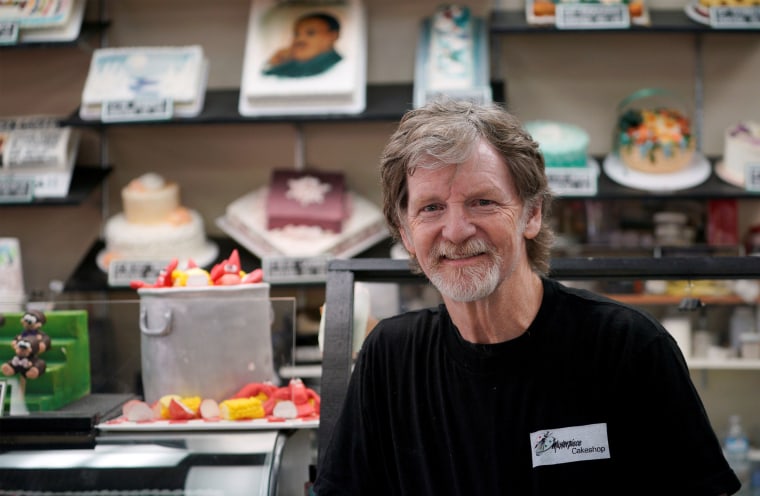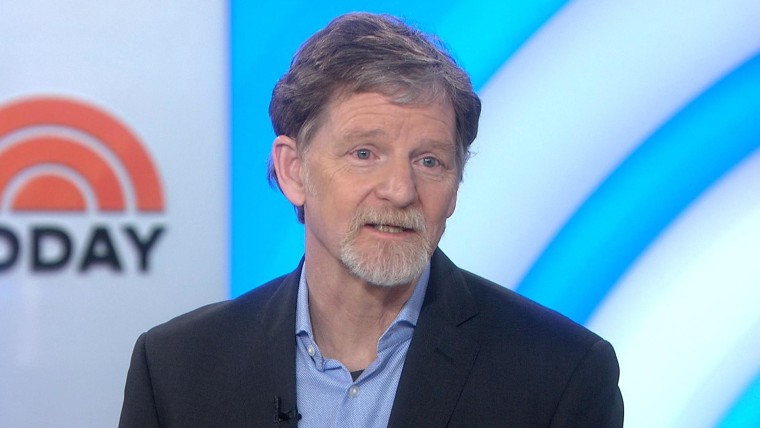Should Christians Have To Bake Gay Wedding Cakes
Baker who refused to make cake for gay hymeneals: 'I don't discriminate'
Jack Phillips maintained he would 'serve everybody that comes in my shop,' but that he wouldn't 'create cakes for every bulletin.'

The baker at the center of a Supreme Courtroom ruling that he cannot be forced to make a block for a same-sex wedding told "Today" on Tuesday that he doesn't "discriminate" against everyone and that he simply doesn't want to bake cakes "for every message" — saying that he would also turn down to create a dessert that insulted the LGBTQ community.
Jack Phillips, possessor of Masterpiece Cake in Denver, had argued that his cakes are works of fine art and that requiring him to bake them for same-sex weddings would strength him to express a view that violated his religious behavior. And in a narrow 7-ii decision, the high courtroom said legal proceedings in Colorado had shown a hostility to the baker's religious views.

Phillips, however, maintained during an interview with "Today," that he would "serve everybody."
"It's just that I don't create cakes for every occasion they inquire me to create," he said.
"I don't discriminate against anybody — I serve everybody that comes in my store," Phillips said. "I don't create cakes for every message that people ask me to create.
"This block is a specific cake, a wedding cake is an inherently religious event and the block is definitely a specific message," Phillips said, explaining his objection to making the hymeneals block for the same-sex wedding ceremony.
But Phillips said there were several other letters he would never concord to put on any of his cakes — including anything that would disparage a fellow member of the LGBTQ community.
'I don't create cakes for Halloween, I wouldn't create a block that would be anti-American or disparaging against anybody for whatsoever reason, even cakes that would disparage people who place as LGBT," he said. "Cakes take a bulletin and this is 1 I can't create."
The narrow Supreme Court ruling ruling in Phillips' case applied to the specific facts of his example just and gave petty hint as to how the court might decide future cases involving florists, bakers, photographers and other business organization owners who have cited religious and free-speech communication objections when refusing to serve gay and lesbian customers in the wake of the Supreme Courtroom's 2015 same-sex wedlock decision.
Should Christians Have To Bake Gay Wedding Cakes,
Source: https://www.nbcnews.com/politics/politics-news/baker-who-refused-make-cake-gay-wedding-i-don-t-n880061
Posted by: sangsterfromete.blogspot.com


0 Response to "Should Christians Have To Bake Gay Wedding Cakes"
Post a Comment